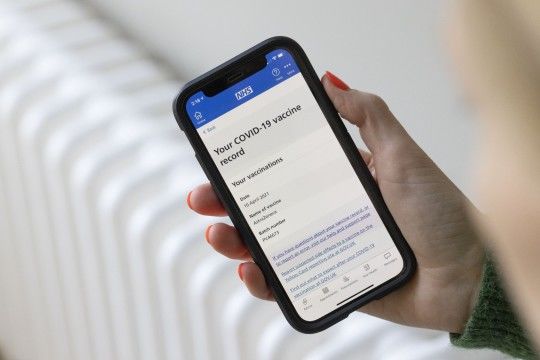
What counts as fully vaccinated?
And that’s on top of all the other stuff we had to concern ourselves with: packing, passport, boarding pass, hotel directions and, erm, remembering to lock the back door before we leave.
In some cases, being fully vaccinated can be the difference quarantining, or roaming (comparatively) free. Or even make it possible for you to avoid providing proof of Covid tests.
But, when exactly are you ‘fully vaccinated’? And does it mean something different in every country?
Here’s the lowdown.
What counts as ‘fully vaccinated’ in the UK?
In the UK, ‘fully vaccinated’ means you’ve had a complete course (usually two jabs) of an approved Covid vaccine.
So, you’ll need to have your first and second dose of either the UK’s best-known vaccines:
* Pfizer/BioNTech
* Oxford/AstraZeneca
* Moderna
* Novavax.
Or a single jab of the Janssen vaccine, a one-shot injection created by Johnson & Johnson.
Two courses of the following vaccines used commonly around the world, as well as different formulations of jabs, also let you qualify as fully vaccinated. The jabs include:
* Covaxin
* Sinovac-CoronaVac
* Sinopharm Beijing
* Moderna Takeda
* AstraZeneca Covishield
* AstraZeneca Vaxzevria.
However, to properly qualify, you’ll need to wait 14 days for that last dose to kick on – starting from the day after you’ve had the jab.
And though it’s important to get the booster, as it provides even more protection against Covid, it does not appear to be required for a classification of ‘fully vaccinated’ in the UK.
 You’ll need to prove you’ve been vaccinated, too
You’ll need to prove you’ve been vaccinated, too
Of course, if you’re curious about your vaccination status because you want to enter England for or after international travel, you will also need to make sure you can prove this status.
The easiest way for England and Wales is to get the NHS Covid Pass. For Scotland, it’s NHS Scotland Covid Status app, and for Northern Ireland the CovidCert NI.
If you’re not from the UK, gov.uk has a complete list of countries from which it will accept Covid vaccine certificates.
Is it the same for other countries?
As anyone who has tried to go on holiday lately will know, every country has its own entry requirements.
The easiest way to find your exact destination’s vaccination requirements (including how to show proof) is to visit the FCDO website and select your chosen country.
Make sure you regularly check, too, as the rules can change at short notice.
But for a hint of what’s classed as ‘fully vaccinated’ by the UK’s best-loved summer destinations, here’s what a few key European countries are saying…
Spain
 To visit Spain, you’ll need to follow the country’s entry requirements
To visit Spain, you’ll need to follow the country’s entry requirements
Fully vaccinated people can go on holiday in Spain without going into quarantine, self-isolation or even taking a Covid test, so it’s good to know what the rules are.
To enter, Spain requires you to have had a full course of a vaccine approved by the European Medicines Agency (EMA) or the World Health Organisation, with the final dose taken at least 14 days earlier.
Whether or not you need a booster jab, too, depends on when you got that second dose.
If it was between 14 and 270 days prior to your trip, you won’t need a booster jab for entry.
If it was more than 270 days prior to your drip, you’ll also need the booster. Fortunately, there’s no time limit on when it ‘kicks in’ so you can get it just before your trip if needed.
For further information, read Spain’s entry requirements on gov.uk.
France
 What counts as fully vaccinated in Paris or anywhere in France?
What counts as fully vaccinated in Paris or anywhere in France?
France classes fully vaccinated as meaning you’ve had a dose of any vaccine approved by the EMA.
This means you’ll need either two doses of Oxford AstraZeneca, Pfizer/BioNTech, Moderna or Novavax – with the final dose given 7 days before your trip at the earliest. Or you’ll need to get the one-shot Janssen jab, which you must have 28 days before you travel.
However, if had your final dose of the approved vaccine over 9 months ago now, then you’ll need to get the booster jab.
If this applies to you, but you haven’t or won’t get the booster jab, then you’ll be made to follow France’s requirements for unvaccinated people – who are required to complete a 10-day self-isolation period.
For further information, read France’s entry requirements on gov.uk.
Italy
 Italy a few vaccines it will accept
Italy a few vaccines it will accept
Currently, Italy counts two doses of Moderna, Oxford/AstraZeneca and Pfizer as being fully vaccinated. Or a single dose of Janssen. It should also accept two-dose Novavax.
To apply, you’ll need to have had the final dose of the course 270 days prior to the travel. You’ll then be given a ‘primary vaccination certificate’ in Italy which is valid for 180 days.
Technically, you can stay in Italy longer than this, but you’ll need to take regular tests once your 180 days are up. But if you’ve had the booster jab, then you’ll be pleased to know your certificate lis unlimited – meaning it literally never runs out.
For further information, read Italy’s entry requirements on gov.uk.
Greece
 To head to the beach in Greece, discover what vaccinations you might need
To head to the beach in Greece, discover what vaccinations you might need
While unvaccinated travellers can get into Greece, they face lots of restrictions in the country itself.
So, you’ll probably want to ensure you class as vaccinated – which is again a full course of an approved vaccine. These include Pfizer, Moderna, Oxford/AstraZeneca, Novavax, Janssen, Sinovac-CoronaVac, Sinopharm as well as Russian jab Sputnik V.
Again, you don’t count as fully vaccinated until 14 days has passed since you had the dose, not included the day of the jab itself. It also only counts until the 9-month mark.
At that point, you’ll need to get a booster jab. Fortunately, you can get the booster whenever and are immediately classed as fully vaccinated.
 The UK accepts a number of
The UK accepts a number of 










